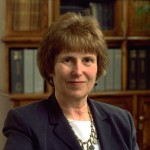2006
The Carnegie Foundation for the Advancement of Teaching
 The pedagogical landscape of higher education is changing. Undergraduate teaching still involves a familiar mix of lectures, laboratories, and seminars. But around the world, faculty are redesigning courses and curricula to engage students in more active, collaborative, and community-based learning; exploring the best ways to make good use of new media, and providing opportunities for students to experience real research. Teaching initiatives in higher education are gaining visibility, innovation is on the upswing, and a new scholarship of teaching and learning has been forming as university staff start asking questions and sharing answers about classroom practice with colleagues on campus and beyond.
The pedagogical landscape of higher education is changing. Undergraduate teaching still involves a familiar mix of lectures, laboratories, and seminars. But around the world, faculty are redesigning courses and curricula to engage students in more active, collaborative, and community-based learning; exploring the best ways to make good use of new media, and providing opportunities for students to experience real research. Teaching initiatives in higher education are gaining visibility, innovation is on the upswing, and a new scholarship of teaching and learning has been forming as university staff start asking questions and sharing answers about classroom practice with colleagues on campus and beyond.
What might these changes mean for scholars who wish to rethink their roles as educators? This seminar addresses that question by looking at the pathways through which faculty become involved in the scholarship of teaching and learning, the issues they take up over time, the communities with which they become engaged, and the different ways in which faculty fit this work into their already busy lives. We will pay special attention to disciplinary and institutional differences in examining the consequences that scholars’ efforts to understand and improve undergraduate education are having for the advancement of their careers, especially (although not only) with regard to tenure and promotion.
These issues are important not only to people who are thinking about taking up the scholarship of teaching and learning, but also to those who are responsible for mentoring younger faculty and for evaluating their colleagues’ performance, as well as for educators who wish to change institutional policies and practice to better support this work.
Indeed, these concerns resonate with faculty who get involved in virtually any emergent area of work, including the “newer” forms of scholarship identified in the Carnegie Foundation’s influential report, Scholarship Reconsidered (Boyer, 1990): the scholarships of integration, application (outreach or engagement), and teaching. Most faculty take up new lines of inquiry because they are intrinsically interesting or valuable in use. But new fields, like established ones, can progress only if they become what Lee Shulman calls “community property.” And they can only become community property when the reward system encourages—and allows—practitioners to develop the work, stay in the academy, and advance to senior positions.
Mary Taylor Huber’s Bio
Mary Taylor Huber is a senior scholar at the Carnegie Foundation for the Advancement of Teaching, where she directs Carnegie’s roles in the Integrative Learning Project and the U.S. Professors of the Year Award, and works with the Higher Education Program of the Carnegie Academy for the Scholarship of Teaching and Learning. Co-author of the Foundation report, Scholarship Assessed: Evaluation of the Professoriate (1997), her other Carnegie Foundation publications include the coedited volume Disciplinary Styles in the Scholarship of Teaching and Learning: Exploring Common Ground (2002), the book Balancing Acts: The Scholarship of Teaching and Learning in Academic Careers (2004), and the coauthored study The Advancement of Learning: Building the Teaching Commons (in press). Huber is a cultural anthropologist, and coeditor (most recently) of Irony in Action: Anthropology, Practice, and the Moral Imagination (2001).
